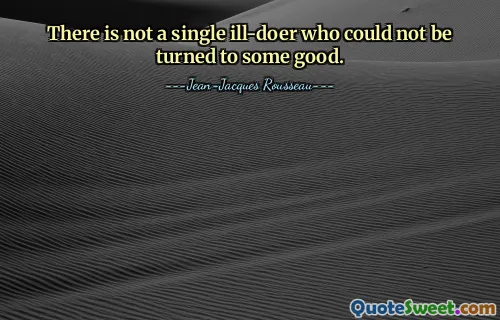Jean-Jacques Rousseau was a pivotal figure in the Enlightenment, influencing modern political and educational thought. He emphasized the importance of natural human goodness and the idea that society corrupts individuals. Rousseau believed that a social contract could lead to a legitimate government, where citizens collectively agree to form a community that protects their rights and freedoms. His work "The Social Contract" laid the groundwork for democratic governance and inspired future political movements. In addition to politics, Rousseau's ideas extended to education, advocating for learning based on the natural development of children. He proposed that education should foster individuality and allow children to explore their instincts and feelings, which he detailed in his novel "Emile, or On Education." This progressive approach to education had a profound impact on pedagogical methods and is still relevant today. Rousseau's philosophy also encompassed themes of emotion and authenticity, arguing that true happiness comes from a connection to nature and human relationships. His autobiographical work "Confessions" introduced a new genre of deeply personal narrative, revealing the complexities of his thoughts and experiences. Rousseau remains a significant thinker whose ideas continue to resonate in contemporary discussions on freedom, equality, and education.
Jean-Jacques Rousseau was a pivotal figure in the Enlightenment, influencing modern political and educational thought. He emphasized the importance of natural human goodness and the idea that society corrupts individuals. Rousseau believed that a social contract could lead to a legitimate government, where citizens collectively agree to form a community that protects their rights and freedoms. His work "The Social Contract" laid the groundwork for democratic governance and inspired future political movements.
In addition to politics, Rousseau's ideas extended to education, advocating for learning based on the natural development of children. He proposed that education should foster individuality and allow children to explore their instincts and feelings, which he detailed in his novel "Emile, or On Education." This progressive approach to education had a profound impact on pedagogical methods and is still relevant today.
Rousseau's philosophy also encompassed themes of emotion and authenticity, arguing that true happiness comes from a connection to nature and human relationships. His autobiographical work "Confessions" introduced a new genre of deeply personal narrative, revealing the complexities of his thoughts and experiences. Rousseau remains a significant thinker whose ideas continue to resonate in contemporary discussions on freedom, equality, and education.
More »
Today Birthdays
1955 -
Max Lucado
1946 -
John Piper
1842 -
William James
1907 -
Abraham Joshua Heschel
1887 -
Aldo Leopold
1755 -
Alexander Hamilton
1976 -
Alethea Kontis
1971 -
Mary J. Blige
1825 -
Bayard Taylor
1943 -
Jim Hightower
1885 -
Alice Paul
1923 -
Carroll Shelby
1928 -
David L. Wolper
1954 -
Kailash Satyarthi
1972 -
Amanda Peet
1946 -
Naomi Judd
1970 -
Malcolm D. Lee
1955 -
Christian Marclay
1973 -
Rahul Dravid
1987 -
Jamie Vardy
1942 -
Clarence Clemons
1992 -
Fatima Sana Shaikh
1948 -
Larry Harvey
1930 -
Rod Taylor
